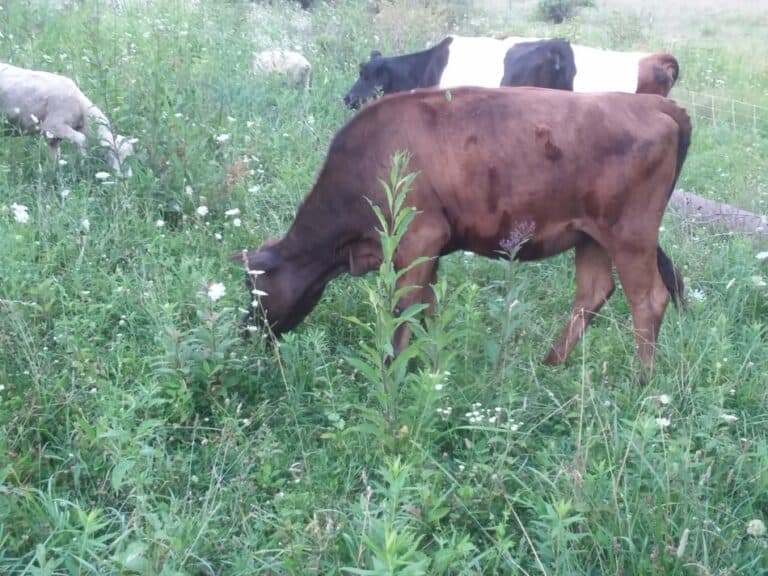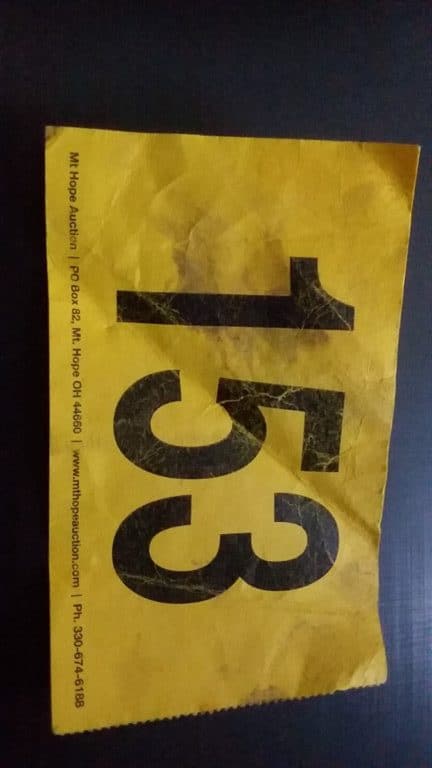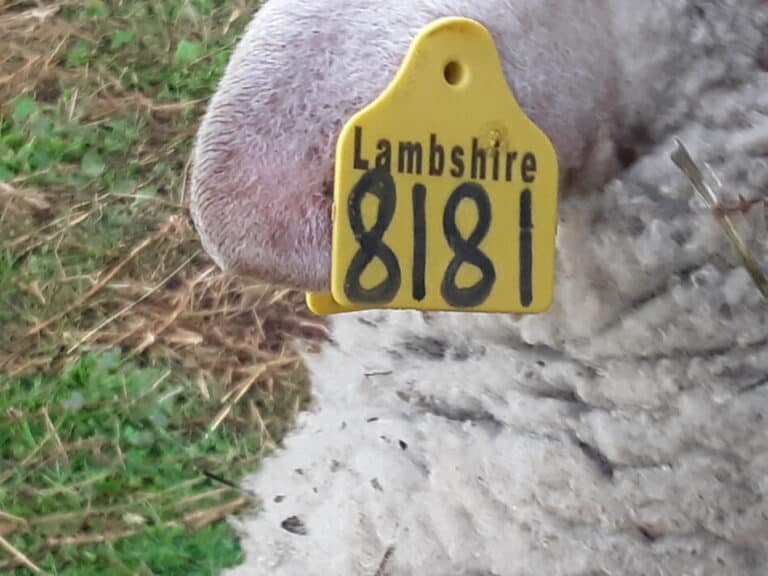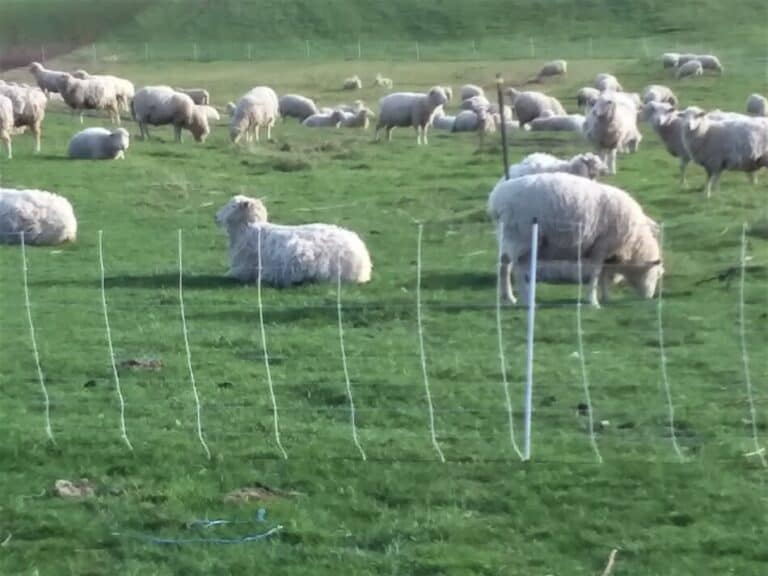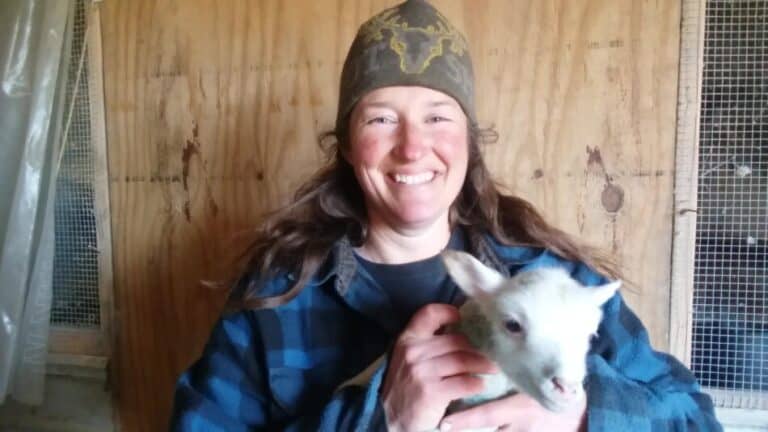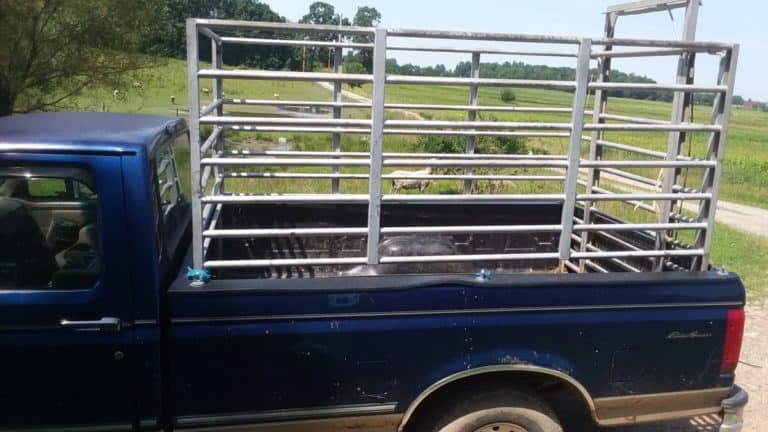Can Grass Ground Out Your Electric Fence?
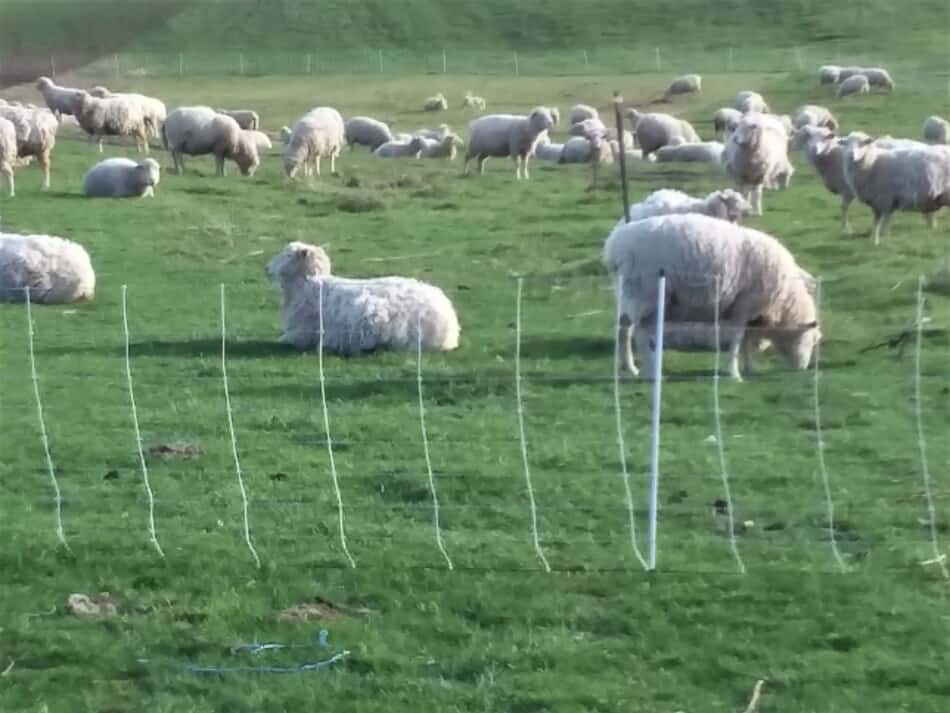
For an electric fence to work well, it has to have plenty of power. A well powered fence will make sure your animals stay in and predators stay out.
One of the main challenges of electric fence is that the grass your animals are eating is also the grass that can potentially cause problems with the power levels in your fence lines.
Grass or other vegetation touching your electric fence will reduce power going through the fence line. Excessive grass contact on an electric fence can completely ground out your fence.
We use electric netting to fence our sheep year round. To make sure the sheep stay where they are supposed to be, we have to have the fence well powered.
Having our fence lines ground out on grass is something we are constantly on the look out for during the growing season. Catching it quickly is the key.
Want to know more about electrified netting? Check out my review of Premier 1’s ElectroNet 9/35/12.
Grass can ground out your electric fence
Grass touching your electric fence can take some of the charge out of the fence. Will the grass completely ground out the fence? That would take a lot of grass or a wimpy charge to begin with, but it can happen.
Grass grounding out your fence is much more likely in the morning, when the dew is still on. The charge will readily jump from the wire to the wet grass.
When the dew is gone, this happens less but any grass touching the fence still will steal power from the rest of the fence line.
The other common time to have grass on your fence (and a lower powered fence line than you planned on) is after a storm, when any kind of taller plant material can get pushed over onto your fence.
The more grass, or other vegetation, that you have touching the fence line, the more you are going to have problems with not enough power continuing through to keep in your animals.
Electric netting is easier to ground out than single strand electric fencing
We use mostly electric netting, so grass or other plants getting blown over on to the fence in a storm is more likely than for anyone using a single strand of wire or polybraid.
The single strand fence is higher off of the ground than the netting, but it can still have problems will grass grounding it out.
Is Electric Netting Worth It? gives you my take on using netting for your animals versus permanent fence.
The more grass touching the fence, the more power is lost
All grass touching the electric fence will pull out some power, more grass means more of a power drain.
Eventually, there will be enough power leaving the fence through the grass that the fence will not have the juice to keep in your animals.
This is a bad situation to be in since once the animals learn that they can jump out, it is much harder to keep them in, even when you get the power back up to where it is supposed to be.
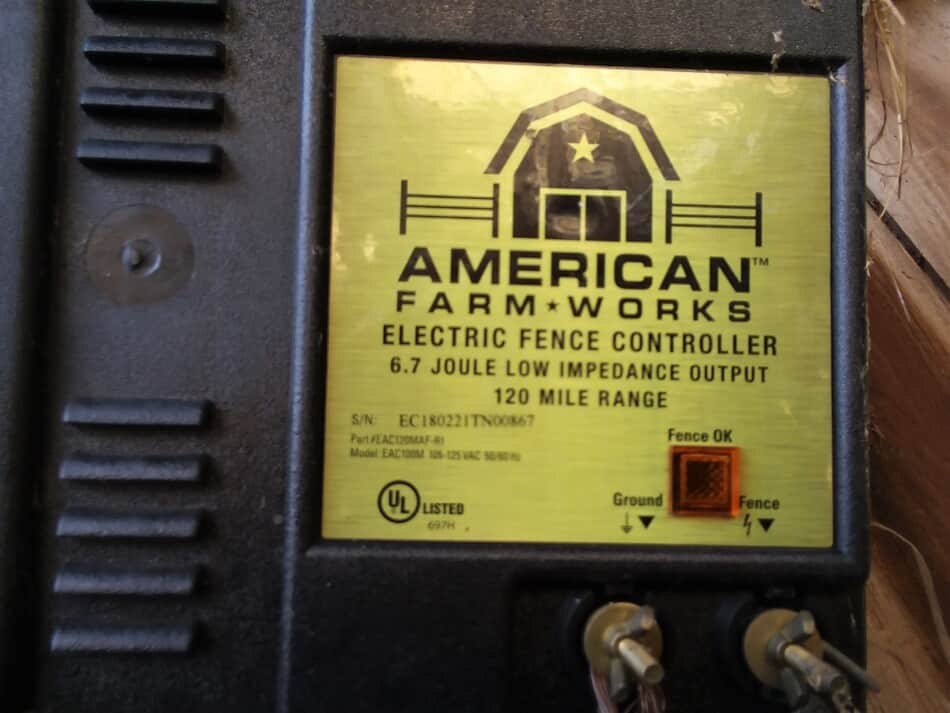
The electric pulse will dry out the plant, eventually
If the fence charger is “hot” enough (has a good amount of power running through the fence) the fence will eventually dry out the part of the grass that is touching the wire.
You’ll know this is happening when the grass that’s touching the wire turns brown.
Once the grass is dried out, it will not be “stealing” large amounts of power from your fence any longer. Until then, the grass touching the fence will take the shocking ability of the fence down substantially.
Other plants will take power from fence, as well
While grass tends to get the blame for grounding out electric fences, any plant that touches the fence line can take power away from the fence, as well.
As mentioned above, after storms or just really windy days, it’s best to check your fence lines to see what exactly is going on out there in the field.
You never know what got blown down and is now touching your fence, or even pushing it down enough that your animals can get out.
We have even had a small group of cattle push a leftover core of a round bale onto the fence, which not only grounded out the fence, but pushed it down so they could all get out! That’s a mistake we won’t make again!
Keep grass trimmed back from fence
The easiest way to keep your fence running at it’s best is to trim the vegetation around the fence line. Trimming makes the grass close to the fence too short to be a problem.
I have to admit, we don’t trim. We have neighbors that are great about trimming the fence line with a weed eater. I must say, their fences always look great and I’m sure are not having problems with grass grounding them out.
We do not use herbicide either! Definitely don’t do that, it’s not safe for you or your animals!
We are moving the fence line every day or two, so we either drive over the line where we will put up the netting, so the grass is smooshed down already or stomp it down as we put up the fence.
Higher powered energizers can handle more grass load
If you are in an area of high rainfall or fast grass growth, you’ll need a higher powered energizer than other places in the country that will not have as much vegetation pressure on the fence line.
The more power your energizer can put through the wires, the more “problems” you can have with the fence and still keep a decent charge on it the entire length of the fence line.
How much power do you need? Definitely be on the higher end of what is recommended for your situation. I would buy the highest powered fencer that would do what I needed.
We buy the biggest one energizer the farm store has available, because we have a lot of fence and sheep on it year round.
Our energizer is 5 joules (joules is how energizer output is measured, higher is more zapability) and we can get too much vegetation pressure on it to keep an okay charge to the furthest fence lines.
For us, we are usually running multiple lines of netting, like 10 or more, and some single strand wire, so it takes a good amount of juice to power all that clear to the end.
Electrified netting needs more power than wires
If you haven’t run across it yet, let me tell you: electric netting takes more power than wire or polybraid.
Here’s a link to one of Premier 1’s energizers, I just picked the first one that came up. This one is on the smaller side, but look around if you need more power, they have a nice selection.
If you scroll down a bit, you’ll see a chart that shows key differences (under common uses and benefits) that lists out the joules and recommended rolls of netting per energizer.
| Energizer joule rating | Rolls of electric netting |
| .3 joules | 1-2 |
| .6 joules | 3-5 |
| 1.2 joules | 6-10 |
| 1.8 joules | 9-15 |
There are other fencing companies and other brands of energizers to buy, if you prefer. Premier 1 has a nice website and sell high quality, so that’s why I look there first.
But, I have to admit, when our fencer stopped working (maybe lightening, not sure!), we went and got one from a place in town, only because we need to have the fence on and can’t wait for an order to ship.
The easy answer is, of course, to plan ahead, but we didn’t. Instead, we got the highest powered fencer we could get around here and, so far, it has worked just fine.
Electric netting can be used as a predator deterrent, but must have power
The other challenge with netting is that it can be used as a predator deterrent. Why is that a challenge? Using netting as a predator deterrent means you are counting on it to keep your animals safe.
It’s easy to not notice when your fence is not carrying the power it should be, unless you make a habit of daily testing (which you should).
Low or no powered fence lines are going to be noticed by the predators first. You’ll only figure it out after a predator starts coming after your animals, hence the need for daily testing.
If you are counting on the netting to keep the “not so nice guys” away from your animals, keep that grass off of your fence lines! A nice, hot fence will make a predator consider getting lunch somewhere else!
